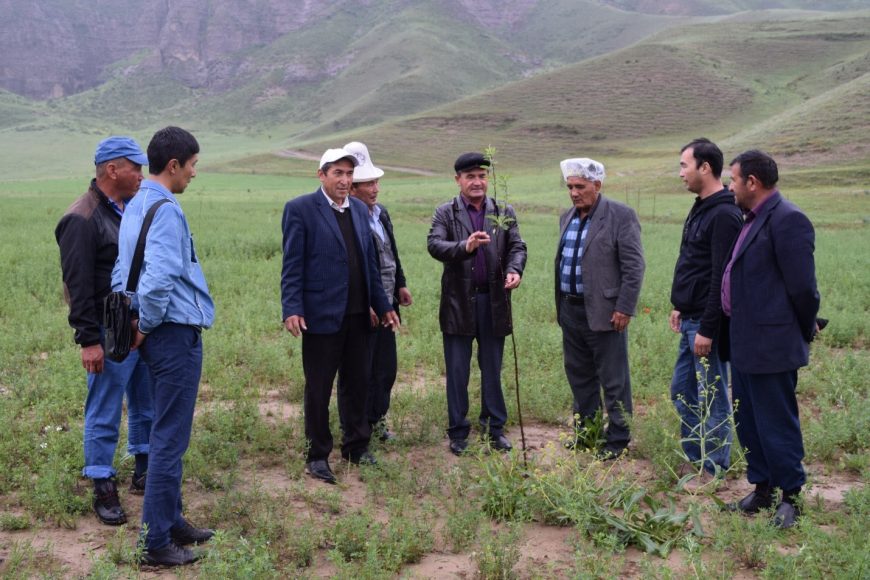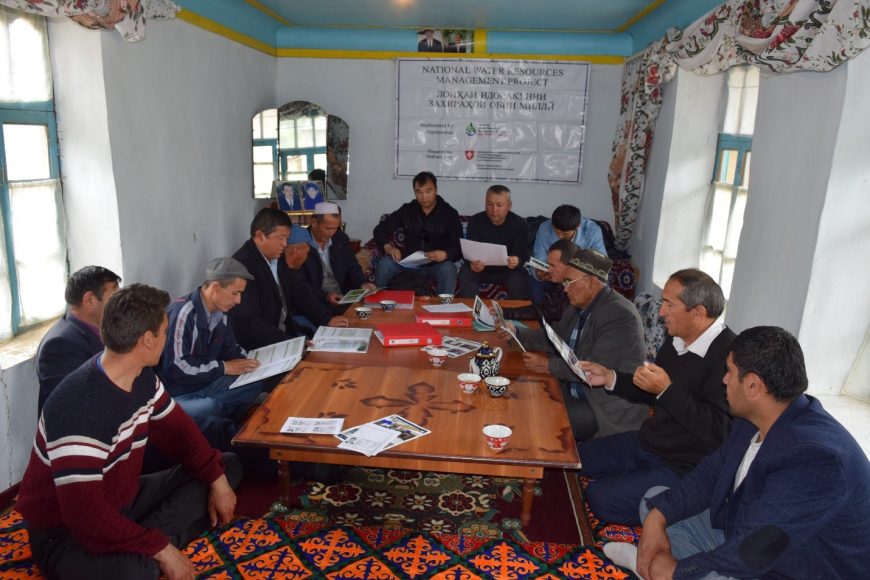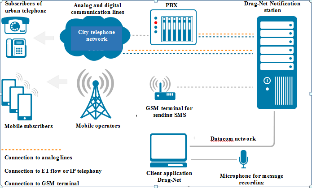ACTED is connecting bordering communities in Kyrgyzstan and Tajikistan to encourage mutual learning, preparation and reaction to disasters.
Two countries with similar disaster risk challenges
Natural disasters know no borders. Numerous border checkpoints cannot stop the calamitous mudflows and landslides facing both Southern Kyrgyz and Northern Tajik communities. These localized disasters tend to strike in the springtime when rising temperatures lead to heavy and sudden rainfall and snow melting. Large amounts of water wash down soil and rocks, triggering mudflows and landslides with dreadful consequences for downstream populations.
When disasters – be they earthquakes, mudflows or landslides − occur, local populations must act as first responders. Through a transboundary project on disaster risk reduction funded by the European Commission, ACTED has been working with communities on both sides of the border to reinforce capacity to prevent disaster, reduce the impact of disaster and recover from losses.

Empowering communities towards disaster risk reduction
In Kyrgyzstan, ACTED works closely with local volunteer rescue groups known as Village Rescue Teams, whose establishment has been much encouraged by the Kyrgyz legislation since 2011. ACTED contributes to training these teams and providing them with equipment and tools to face disasters.
Meanwhile, authorities in Tajikistan are working to develop strategies and gain expertise in disaster response and preparedness. However, this knowledge seldom reaches local communities. ACTED focuses on filling this gap at the grassroots level to ensure communities’ safety, preparedness and resilience capacity.
ACTED’s approach to sustainable water resources management
The risks of water-related disasters in vulnerable border communities are often aggravated by practices like deforestation and overgrazing. The misuse of water and ill-suited agricultural practices are damaging the soil, thus increasing the risk for landslides and mudflows when heavy rains occur. To address these issues, ACTED introduced a watershed management approach in line with its global strategy on ecosystem-based approaches to disaster risk reduction. To reduce water-related disaster risks in the two main transboundary sub-basins (Aksu and Khojibakirgan) shared between Kyrgyzstan and Tajikistan, ACTED, Helvetas and GIZ − with support from the Swiss Agency for Development and Cooperation (SDC) – support and promote sustainable watershed management processes for disaster risk reduction as part of a national water resources management project.
to include the Kyrgyz counterparts through a complementary project (supported by the European Union) that has the same approach, but directly involves the Kyrgyz communities. The watershed management plan for disaster risk reduction serves as an innovative roadmap for the sustainable use of shared natural resources.

Supporting transboundary cross-visits to connect stakeholders
Connecting communities may seem like a drop in the ocean, but it is the first step in establishing a transboundary dialogue between Kyrgyz and Tajiks. ACTED facilitates cross-border exchanges to encourage knowledge sharing and capitalization on experiences from both sides, which are different but complementary and thus mutually reinforcing. Connecting communities on disaster risk reduction issues also improves relations between neighbors living in this conflict-prone area, which in turn contributes to sustainable, peaceful and coherent resource management between the two countries. These exchanges highlight the challenges of sharing an ecosystem, while reaffirming the value of cooperation for a better and more sustainable situation on both sides of the border.
Linking both communities and ministries in a transboundary approach
As disaster risk disaster is a complex issue, these transboundary cross-visits are merely one part of a larger framework which includes the set-up of an early warning system, connecting both countries through phones and a software to warn communities in case of disasters. The early warning system works with the drag-net software supervised by the Committee of Emergency Situations and Civil Defense of Sughd region (Tajikistan). In case of emergency, the Committee can automatically contact the authorities, at-risk populations, community leaders, rescue teams and other relevant stakeholders. Through this system, populations receive emergency warnings within a few minutes, enabling them to react quickly and protect themselves before disaster strikes.

ACTED facilitated a series of transboundary meetings between the Ministry of Emergency Situations of the Kyrgyz Republic and the Committee of Emergency Situations and Civil Defense of Tajikistan, which resulted in the signature of an interstate agreement. The parties signed various protocols to coordinate efforts and support each other in case of natural disaster occurring in the cross border area. Thanks to this Memorandum, they are able to plan joint activities to improve cooperation mechanisms to prevent emergencies, to facilitate evacuations and to implement joint exercises and information exchange.